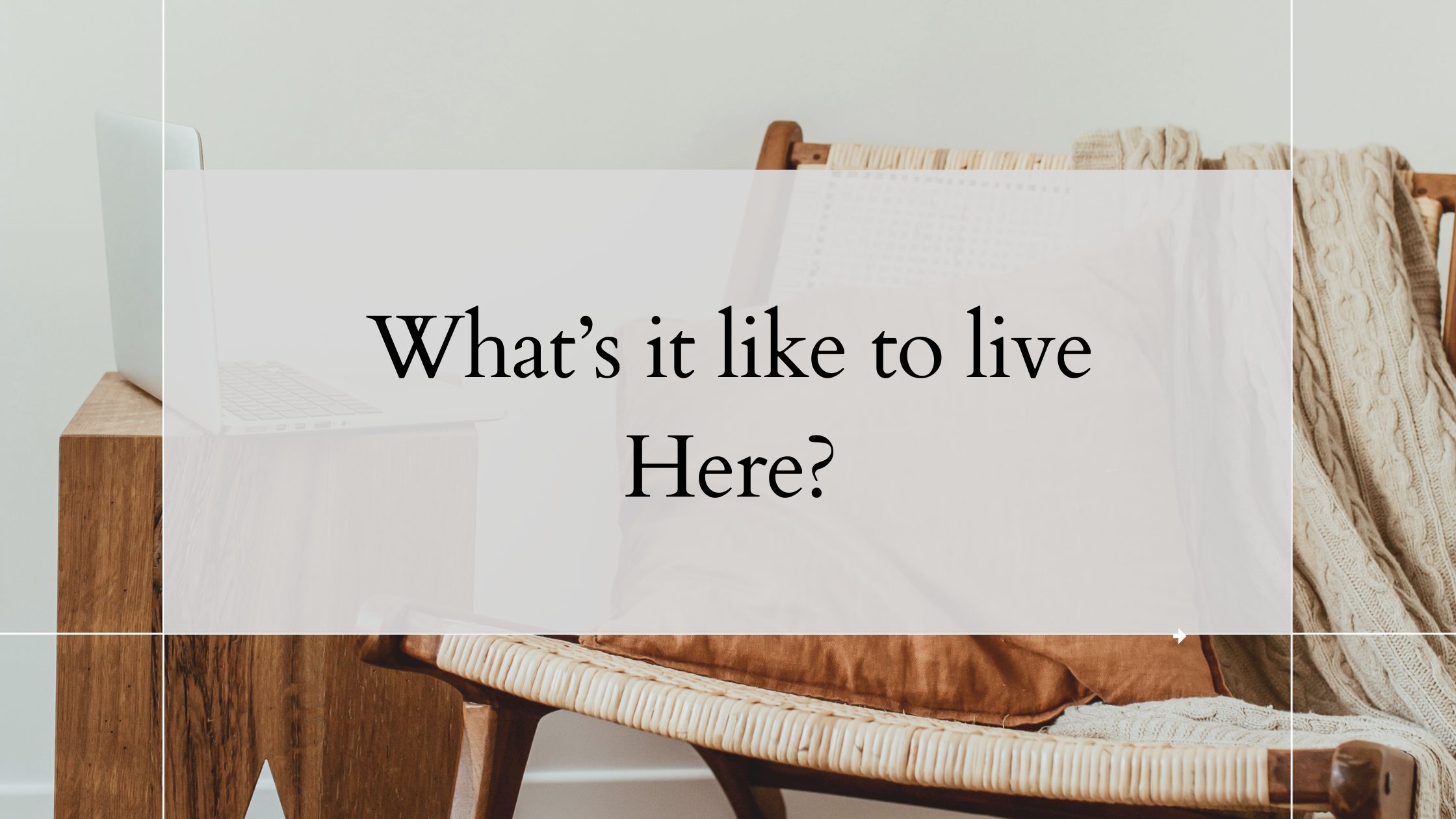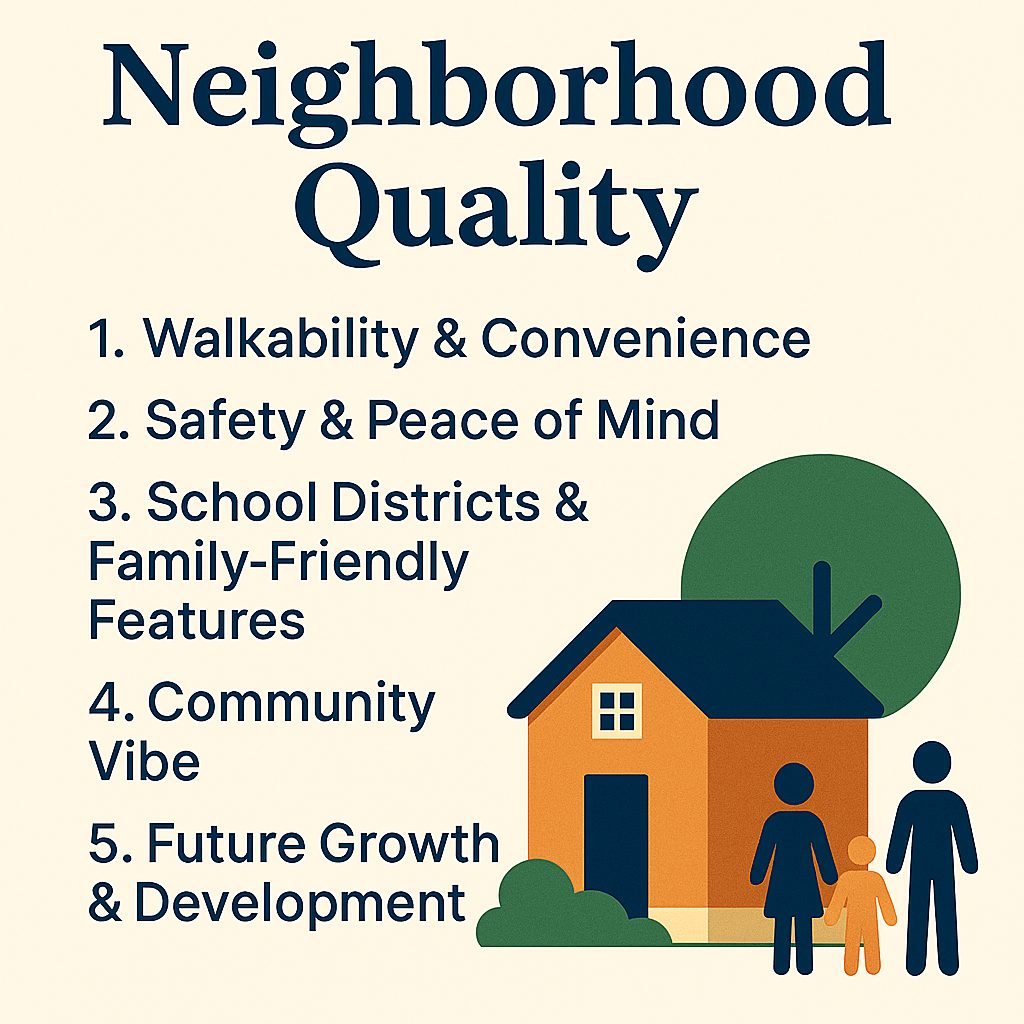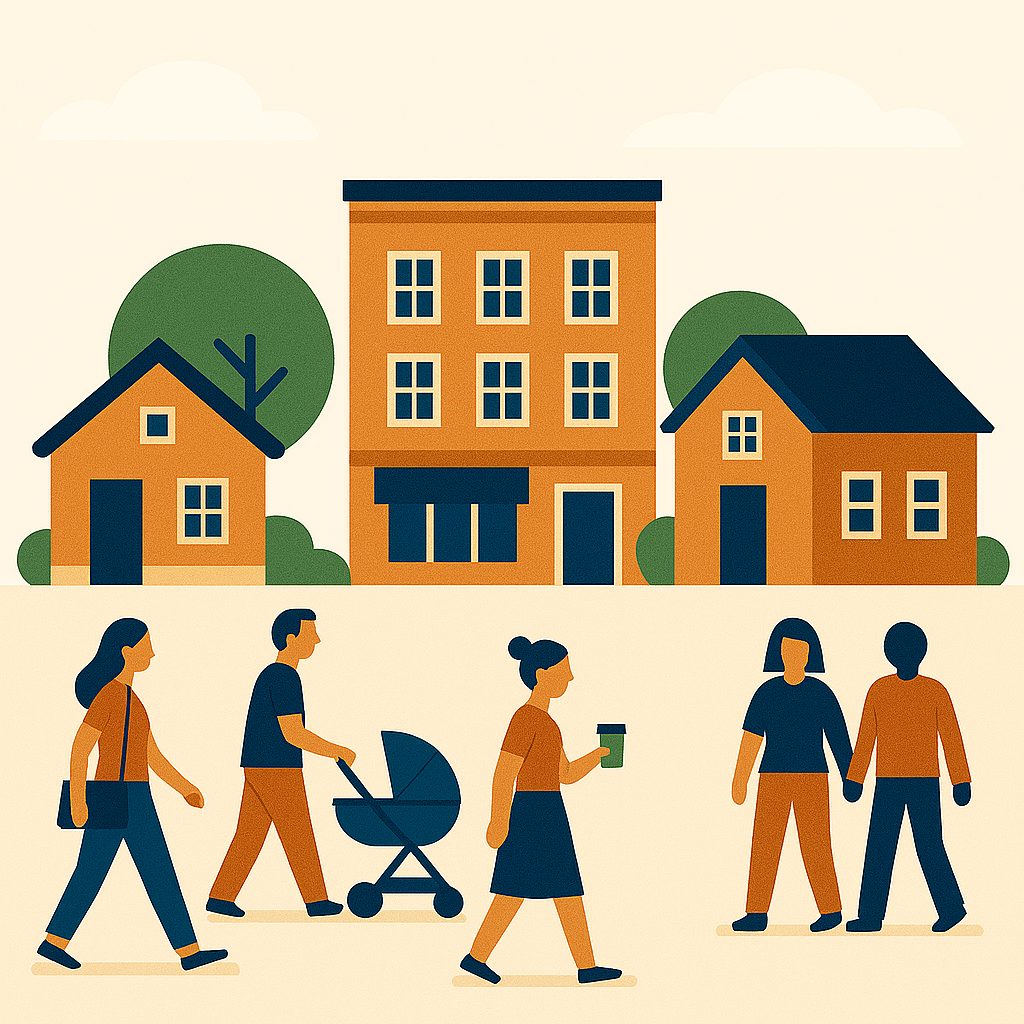
When it comes to buying a home, most people focus on square footage, kitchen upgrades, or how many bathrooms they’ll get. But here’s a little secret: the neighborhood you choose can impact your happiness just as much—if not more—than the house itself.
In 2025, buyers are thinking beyond the front door. They’re asking: “What’s it like to live here?”
And that’s where neighborhood quality and lifestyle come into play.
- Walkability & Convenience
Imagine being able to grab coffee, groceries, or dinner without hopping in the car. Walkable neighborhoods are in high demand because they offer convenience, save time, and promote a healthier lifestyle. Bonus: they often have a stronger sense of community.
Tip: Look for areas with sidewalks, nearby shops, and public transit options.
- Safety & Peace of Mind
Safety is a top priority for buyers—and rightly so. A peaceful, well-maintained neighborhood not only feels better to live in, but it also adds long-term value to your investment. Buyers are checking crime stats, talking to locals, and even driving through at night to get a feel for the area.
Tip: Ask your agent for local safety data and community reviews.
- School Districts & Family-Friendly Features
Even if you don’t have kids, buying in a good school district can boost your home’s resale value. Families are looking for parks, playgrounds, and community events that make a neighborhood feel like home.
Tip: Explore school ratings and family-friendly amenities nearby.
- Community Vibe

Community Vibe
Some neighborhoods are quiet and serene. Others are buzzing with energy and events. The key is finding a vibe that matches your lifestyle. Do you want block parties and farmer’s markets—or peace and privacy?
Tip: Visit the area at different times of day and talk to residents if you can.
- Future Growth & Development
A neighborhood’s potential matters. Areas with planned development, new businesses, or infrastructure improvements often see rising property values. Buyers are thinking long-term—and so should you.
Tip: Ask about zoning changes, new construction, or city plans that could impact the area.
Final Thoughts
Your home is more than a building—it’s part of a larger community. Choosing the right neighborhood means choosing a lifestyle that supports your goals, your values, and your day-to-day happiness.
Whether you’re buying your first home or your forever home, don’t overlook the power of location. Because in the end, where you live shapes how you live. Reach out, let’s talk about your real estate goals.

 Facebook
Facebook
 X
X
 Pinterest
Pinterest
 Copy Link
Copy Link

